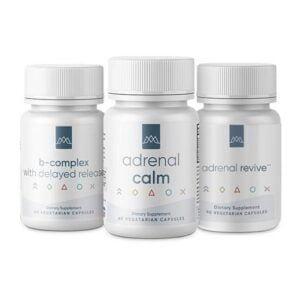You’re not alone if you’re feeling more stress these days. Surveys show that 79 percent of Americans sometimes or frequently feel stress, and this was before the pandemic. [1]
Chronic stress can make your day miserable, but over time it can lead to health problems such as heart disease, high blood pressure, diabetes, depression, and anxiety.[2] You can learn more about stress’s far-reaching consequences here.
You can’t eliminate stress, but you can learn to better manage it. Relaxation is a great way. Finding ways to regularly unwind and rejuvenate helps the body and mind to heal, recover, and sustain a deep calm. In our “do more” society, relaxation doesn’t often get the importance it deserves.
As a result, many of us are tired, overworked, and almost constantly stressed out.
Deep Relaxation: The Antidote to Stress
Learning to deeply relax offers many benefits. You might find you have more energy. Your digestion improves after meals. You concentrate and sleep better. You don’t get frustrated as often and your level of confidence helps you better manage problems.[3]
The best relaxation methods help manage stress and also provide other health benefits. Some of the best ways include:
- Even a few minutes of meditation can help you relax and unwind. Learn more about how to meditate here.
- Deep breathing. Even in the midst of a hectic day, you can pause for a minute to take several deep, conscious breaths to create calm.
- Yoga provides many relaxation benefits. They include reducing stress, anxiety, depression, and chronic pain. People who do yoga regularly have better sleep patterns and overall well-being and quality of life.[4]
- Exercise can boost self-confidence, reduce mild depression and anxiety, lower stress levels, and improve your sleep.[5] The feel-good endorphins you release during exercise also help you better relax.
- Saunas can help relax tense muscles, improve your circulation, and boost the same feel-good endorphins that you get with exercise.
- Loneliness can contribute to numerous health problems. Finding a supportive community can help you better cope with life’s inevitable stressors, and being around others is also a great way to relax.[6] Being active with your family is a great way of creating community and feeling more relaxed.
4 More Ways to Relax Deeply
Relaxation is a skill that you can learn and cultivate. When you combine the above relaxation techniques with these four principles, you create a life with less stress and far more joy.
- Get great sleep. Sleep is the ultimate way to relax. Unfortunately, one in three American adults don’t get enough sleep every night.[7] Adults who get fewer than eight hours of sleep every night experience more stress than those who sleep at least eight hours every night. An extra 60 to 90 minutes of sleep nightly can help you feel happier, healthier, and safer.[8]
- Eat a nutrient-rich diet. Eating nutrient-rich foods can help you feel calmer. Chronic stress raises cortisol. Elevated levels of this hormone can tax the adrenal glands, immune system, and more.. Foods high in vitamin C can help the body manage stress levels, balance cortisol levels, and support the immune system. Most of us don’t get enough magnesium, a calming mineral rich in foods like nuts and seeds.[9] Our Core and Advanced Plans provide delicious, nutrient-rich foods that help your body thrive.
- Change your perspective. Relaxation is a mindset that you can learn. You can be stressed out on a beach in Hawaii or totally calm in a New York City traffic jam. A relaxed, focused, calm mindset is like a muscle: It gets stronger the more you work at it. To feel more relaxed, find moments throughout your day to pause, breathe deeply, and feel gratitude for the good things in your life.
- Create more time to relax. “Not enough time” often goes along with feeling stressed out. You can create simple ways to make more time throughout your day for relaxation. Our Immunity Boosting Smoothie at breakfast provides the nutrients your body needs to thrive, and you can make it in minutes. If time makes exercise a challenge, try our Max T3 Just 12 minutes gives you an intense, full-body workout in your own home.
Nutrient Support to Manage Stress and Feel More Relaxed
There has never been a more critical time to manage the stress that can create widespread damage to your body and mind. When you’re eating healthy and making smart lifestyle decisions to promote calm, additional nutrient support can help the body better cope with life’s many stressors.
That’s why we created our Stress Management Bundle, which combines three powerful formulas that support the body’s stress response and help you feel calmer: 
- Adrenal Calm is a natural calming supplement that contains gamma-Aminobutyric Acid (GABA) and inositol, which calm the nervous system. GABA deficiencies may play a role in health conditions like anxiety, depression, and sleep disturbances. Inositol enhances the positive effects of GABA supplements and supports the production of your feel-good neurotransmitter serotonin.
- Adrenal Revive contains a variety of herbs and nutrients that support optimal adrenal health and how the body responds to stress.
- B-Complex with Delayed Release® contains a complete B-vitamin group. B-vitamins support energy levels, how your hormones and nervous system perform, and much more. Stress can deplete B vitamins.[10] Our formula is in a delayed release capsule for optimal absorption and delivery.
Stress can steal your health and happiness. With the right strategies and mindset here, you can take control and find a deep calm. You can make relaxation a regular, beneficial part of your life!
References
[1] https://news.gallup.com/poll/224336/eight-americans-afflicted-stress.aspx
[2] https://www.nimh.nih.gov/health/publications/stress/index.shtml
[3] https://www.mayoclinic.org/healthy-lifestyle/stress-management/in-depth/relaxation-technique/art-20045368
[4] https://www.ncbi.nlm.nih.gov/pmc/articles/PMC3193654/
[5] https://www.mayoclinic.org/healthy-lifestyle/stress-management/in-depth/exercise-and-stress/art-20044469
[6] https://www.apa.org/topics/manage-stress-social-support
[7] https://www.cdc.gov/media/releases/2016/p0215-enough-sleep.html
[8] https://www.apa.org/news/press/releases/stress/2013/sleep
[9] https://exploreim.ucla.edu/nutrition/eat-right-drink-well-stress-less-stress-reducing-foods-herbal-supplements-and-teas/



